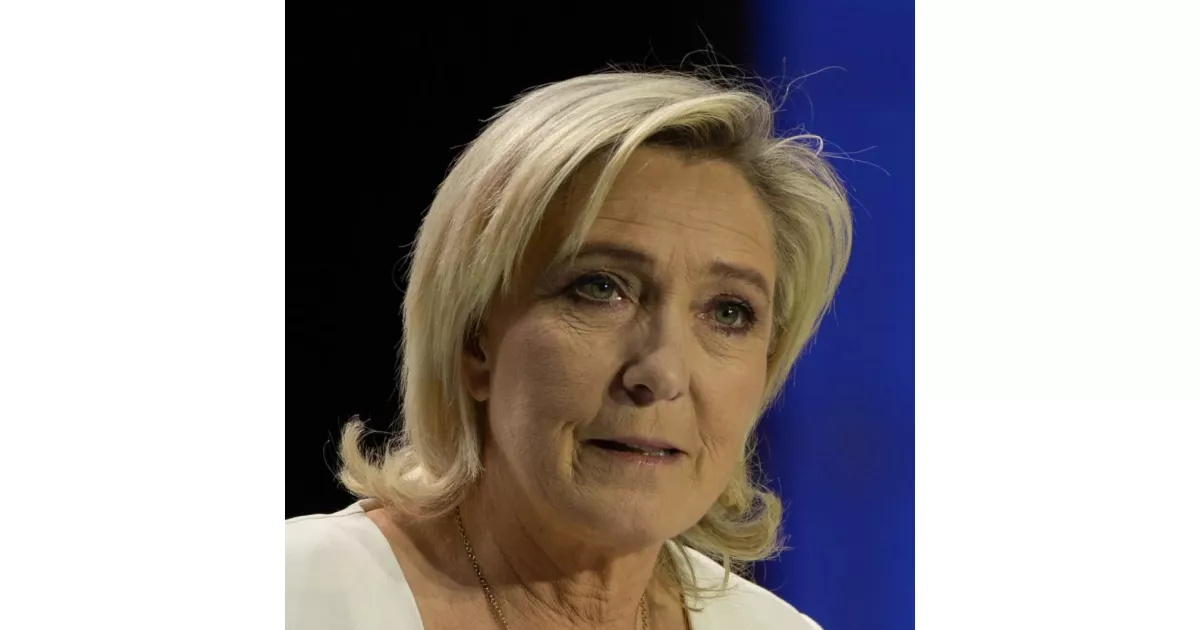Discover the career path of Marine Le Pen, from the first major opportunity to industry-changing achievements.
Marine Le Pen is a French lawyer and prominent politician associated with the far-right National Rally party. She served as the party's president for a decade and has been a member of the National Assembly since 2017. Notably, Le Pen has run for the French presidency three times, in 2012, 2017, and 2022, becoming a significant figure in French politics.
1986: Joined the FN
In 1986, Marine Le Pen joined the National Front (FN) at the age of 18.
1993: First parliamentary election
In 1993, Le Pen first ran for parliament in Paris' 16th constituency, finishing third with 11.10% of the votes. Bernard Pons was re-elected as the MP in the first round.
1995: FN list in municipal election
In 1995, Steeve Briois led the FN list with Marine Le Pen in second position for a municipal election. The FN list came second with 28.53% in the first round.
1998: Elected Regional Councillor
In 1998, Marine Le Pen acquired her first political mandate when she was elected a Regional Councillor for Nord-Pas-de-Calais. She also joined the FN's juridical branch.
1998: Joined Legal Department of National Front
In 1998, Marine Le Pen joined the legal department of the National Front after working as a lawyer.
1998: Included in FN list in Nord-Pas-de-Calais
In 1998, Marine Le Pen was included in the FN list in Nord-Pas-de-Calais.
2000: President of Generations Le Pen
In 2000, Marine Le Pen became president of Generations Le Pen. She also became a member of the FN Executive Committee.
2002: Legislative election in Pas-de-Calais
In 2002, Le Pen stood in the election in Pas-de-Calais' 13th constituency, Lens. Le Pen polled 24.24% in the first round, qualifying for the run-off against socialist Jean-Claude Bois, in which Le Pen received 32.30%; Bois was re-elected as the MP with 67.70%.
2002: First round polling in Nord-Pas-de-Calais
In 2002, Le Pen's list polled 18.31% (224.871 votes) and finished in third position in Nord-Pas-de-Calais. In Pas-de-Calais, her list polled 19.81% (96,556 votes), ahead of the UMP (15.91%, 77,550 votes), and won by a large margin in Hénin-Beaumont (39.08%, 2,949 votes).
2002: Comparison to her father's results
In 2012, Marine Le Pen achieved better results, in both percentage vote-share and number of votes, than her father had in the 2002 presidential election.
2003: Vice-President of the FN
In 2003, Marine Le Pen became vice-president of the FN.
2003: End of Leadership of Juridical Branch
In 2003, Marine Le Pen ceased leading the juridical branch of the FN.
July 2004: Became a Member of the European Parliament
On July 20, 2004, Marine Le Pen became a Member of the European Parliament in the Île-de-France constituency, initially as a Non-Inscrit.
2004: Elected to European Parliament
In 2004, Marine Le Pen led the FN list in the Île-de-France constituency for the European Parliament election. The list polled 8.58%, winning one of fourteen available seats.
2004: End of term as regional councillor
In 2004, Marine Le Pen's six-year term as a regional councillor (1998-2004) ended.
2004: Led FN regional list in Île-de-France
In the 2004 elections, Marine Le Pen led the FN regional list in Île-de-France and the departmental list in Hauts-de-Seine.
2006: Managed Father's Presidential Campaign
In 2006, Marine Le Pen managed the presidential campaign of her father, Jean-Marie Le Pen.
January 2007: Joined Identity, Tradition, Sovereignty
On January 15, 2007, Marine Le Pen joined the Identity, Tradition, Sovereignty group in the European Parliament.
November 2007: Returned to Non-Inscrits in European Parliament
On November 14, 2007, Marine Le Pen returned to being a Non-Inscrit in the European Parliament after a period with Identity, Tradition, Sovereignty.
2007: Election in Pas-de-Calais' 14th constituency
In 2007, Le Pen and her substitute Steeve Briois stood for the FN in the Pas-de-Calais' 14th constituency, Hénin-Beaumont. Le Pen's campaign committee was led by Daniel Janssens.
2007: Executive Vice-President of the FN
In 2007, Marine Le Pen became one of the two executive vice-presidents of the FN, with responsibility for training, communication, and publicity.
2007: Contested Parliamentary Election
In the 2007 parliamentary election, Marine Le Pen contested Pas-de-Calais' 14th constituency but came second behind incumbent Socialist MP Albert Facon.
December 2008: Appearance on Quebec web-radio station Rockik
In December 2008, Marine Le Pen appeared on Quebec web-radio station Rockik.
February 2009: Stepped down as regional group leader
In February 2009, Le Pen stepped down as regional group leader to concentrate on the European election campaign in the North-West France constituency.
July 2009: End of term as MEP in Île-de-France constituency
On July 13, 2009, Marine Le Pen's term as a Member of the European Parliament in the Île-de-France constituency came to an end.
July 2009: Became MEP in North-West France constituency
On July 14, 2009, Marine Le Pen became a Member of the European Parliament in the North-West France constituency, initially as a Non-Inscrit.
October 2009: Quotes from Mitterrand's book on France 2
In October 2009, during an appearance on the programme Mots croisés (Crossed Words) on France 2, Marine Le Pen quoted sections of Frédéric Mitterrand's autobiographical novel The Bad Life, accusing him of having sex with underage boys and engaging in sex tourism, and demanding his resignation as Minister of Culture.
2009: Le Pen led FN list in European parliament election
In 2009, Marine Le Pen led the FN list in the North-West France constituency for the European parliament election. The party polled 10.18% of the votes and won one of the ten seats. The FN's constituency list received its highest regional result in Picardy, its highest departmental result in Aisne, and its highest municipal results in Pas-de-Calais.
January 2010: First appearance on "À vous de juger"
In January 2010, Marine Le Pen appeared on À vous de juger (You Be The Judge) on France 2 opposite Éric Besson, then-Minister of Immigration, Integration, National Identity and Mutually Supportive Development.
September 2010: Launched Leadership Campaign
On 3 September 2010, Marine Le Pen launched her leadership campaign at Cuers, Var.
November 2010: Campaign Meeting in Paris
During a meeting in Paris on 14 November 2010, Marine Le Pen outlined her goals for the National Front.
December 2010: Final Campaign Meeting
During her final meeting of the campaign in Hénin-Beaumont on 19 December 2010, Marine Le Pen claimed that the FN would present the real debate of the next presidential campaign.
December 2010: FN Presidential Election
In December 2010, FN members began voting for their new president and the members of the central committee.
December 2010: Guest on "À vous de juger"
In December 2010, Marine Le Pen was questioned on economic, social and immigration issues on "À vous de juger" by Chabot and political commentator Alain Duhamel. She then took part in debates with Manuel Valls and Rachida Dati. The broadcast had the highest viewing figures for 2010 for the show.
2010: Expressed Intention to Run for FN Leader
Early in 2010, Marine Le Pen expressed her intention to run for leader of the FN.
2010: RTL Interview on Strategy
In a 2010 RTL interview, Marine Le Pen stated that her strategy was about showing the FN as it really is.
2010: Led FN regional list in Nord-Pas-de-Calais
In the 2010 elections, Marine Le Pen led the FN regional list in Nord-Pas-de-Calais and the departmental list in Pas-de-Calais.
January 2011: Elected President of the FN
On 16 January 2011, Marine Le Pen was elected as the new president of the FN.
January 2011: Advocating for national community and direct democracy
On January 16, 2011, in Tours, Marine Le Pen advocated to restore the political framework of the national community and to implement direct democracy. She defended a protective state favoring secularism, prosperity, and liberties, denouncing the Europe of Brussels.
February 2011: Resigned as a municipal councillor
On 24 February 2011, Le Pen resigned as a municipal councillor because of the law on the accumulation of mandates. She expressed the view that her political activities would be more effective for the city at regional and European levels than in the municipal council.
March 2011: Appearance on Israeli radio station 90FM and front cover of The Weekly Standard
In March 2011, Marine Le Pen appeared on the Israeli radio station 90FM. She also appeared on the front cover of The Weekly Standard magazine.
May 2011: First Speech in front of supporters
After the traditional Joan of Arc march and Labour Day march in Paris on May 1, 2011, Marine Le Pen gave her first speech in front of 3,000 supporters.
May 2011: Presidential candidacy approved
On May 16, 2011, Marine Le Pen's presidential candidacy was unanimously approved by the FN Executive Committee.
June 2011: First appearance on "Des paroles et des actes"
In June 2011, Marine Le Pen appeared opposite Cécile Duflot, national secretary of The Greens on the show "Des paroles et des actes".
September 2011: First appearance on Parole directe
In September 2011, Marine Le Pen's first appearance as a sole guest on Parole directe (Direct Speech) on TF1, was viewed by an average of 6 million viewers.
September 2011: Presidential campaign launch
On September 10 and 11, 2011, Marine Le Pen launched her presidential campaign in Nice.
September 2011: Political comeback in Nice
On September 10 and 11, 2011, Marine Le Pen made her political comeback with the title "the voice of people, the spirit of France" in the convention centre of Acropolis in Nice. Her closing speech addressed immigration, insecurity, and economic issues.
October 2011: Introduction of campaign team members
On October 6, 2011, Marine Le Pen held a press conference to introduce the members of her presidential campaign team.
November 2011: Presentation of presidential campaign themes
On November 19, 2011, in Paris, Marine Le Pen presented the main themes of her presidential campaign, including sovereignty, Europe, re-industrialisation, family, education, immigration, and geopolitics.
December 2011: First campaign meeting in Metz
On December 11, 2011, Marine Le Pen held her first campaign meeting in Metz.
December 2011: Opposition to foreigners' right to vote
On December 8, 2011, during a demonstration held in front of the Senate, Marine Le Pen expressed her firm and absolute opposition to the right of foreigners to vote.
2011: Elected President of the FN
In 2011, Marine Le Pen won the leadership of the FN with 67.6% of the vote, succeeding her father Jean-Marie Le Pen.
January 2012: Press conference organised by the European American Press Club
In January 2012, Marine Le Pen spoke to international journalists at a press conference organised by the European American Press Club.
January 2012: Assessment of presidential project
On January 12, 2012, Marine Le Pen presented a detailed assessment of her presidential project and a plan to reduce France's debt at a press conference.
February 2012: Outline of overseas policies
On February 1, 2012, Marine Le Pen outlined her policies for the overseas departments and territories of France during a press conference.
March 2012: Collection of signatures for presidential election
On March 13, 2012, Marine Le Pen announced that she had collected the 500 signatures required to take part in the presidential election.
April 2012: Final campaign meeting in Paris
On April 17, 2012, between 6,000 and 7,000 people participated in Marine Le Pen's final campaign meeting, held at the Zenith in Paris.
April 2012: Approval of candidacy by Constitutional Council and first-round result
On April 19, 2012, the Constitutional Council approved Marine Le Pen's candidacy. On April 22, 2012, she polled 17.90% in the first round, finishing third.
May 2012: Refusal to back either Sarkozy or Hollande
On May 1, 2012, Marine Le Pen refused to endorse either Nicolas Sarkozy or François Hollande in the presidential run-off. She vowed to cast a blank ballot and told her supporters to vote with their conscience, accusing both candidates of surrendering to Europe and financial markets.
June 2012: Formation of electoral coalition and parliamentary elections
Following the increase in support for the FN, Marine Le Pen announced the formation of the Blue Marine Gathering electoral coalition to contest the June 2012 parliamentary elections. She ran for Pas-de-Calais' 11th constituency but was defeated in the second round.
June 2012: Election in Pas-de-Calais' 11th constituency
In June 2012, Le Pen stood in Pas-de-Calais' 11th constituency. She finished first in the first round with 42.36% of the votes, but was defeated in the second round by Philippe Kemel.
2012: Analysis of FN Voters
In 2012, French sociologist Sylvain Crépon analysed the social and occupational groups of the FN voters, explaining that they were made up of the victims of globalisation, including small shopkeepers, low-paid workers, and the unemployed.
2012: 2012 Presidential Election
In 2012, Marine Le Pen placed third in the French presidential election with 17.9% of the vote.
2012: Criticism from Éric Zemmour
In 2012, during the presidential election, Éric Zemmour, a journalist for Le Figaro, criticized Marine Le Pen, stating that the FN had become a left-wing party under the influence of Florian Philippot.
2012: Aimed to be the FN candidate
Marine Le Pen said in November 2010 that in her view the FN leader should be the party's candidate in the 2012 presidential election.
February 2013: Spoke at Cambridge Union Society
In February 2013, Marine Le Pen spoke at the Cambridge Union Society, sparking controversy and protests from anti-fascist groups.
May 2014: FN receives most votes in European elections
On May 24, 2014, the FN received the most votes in the European elections in France, with a 24.90% share. Marine Le Pen came in first place in her North-West constituency with 33.60%.
July 2014: FN representatives elected to European Parliament
In July 2014, 25 FN representatives were elected to the European Parliament from France and they voted against the Juncker Commission when it was formed.
2014: Electoral advances in municipal and senatorial elections
In 2014, Marine Le Pen led the party to further electoral advances in the municipal and senatorial elections. Eleven mayors and two senators were elected, with the FN entering the upper chamber for the first time.
June 2015: End of term as MEP in North-West France constituency
On June 16, 2015, Marine Le Pen's term as a Member of the European Parliament in the North-West France constituency came to an end.
August 2015: Expulsion of Father from Party
In August 2015, Marine Le Pen expelled her father from the National Front (FN) after he made controversial statements.
2015: Regional elections
In 2015, Marine Le Pen announced her candidacy for the presidency of the regional council of Nord-Pas-de-Calais-Picardie in the regional elections. On December 6, she finished first with 40.6% of the vote, but ultimately lost to Xavier Bertrand.
2015: Expulsion of Father from Party
In 2015, Marine Le Pen expelled her father from the National Front (FN) as part of her policy of "de-demonisation" of the party.
2015: Reactions to her social program
In 2015, Nicolas Sarkozy declared Marine Le Pen a far-left politician due to her social program and support of SYRIZA in the Greek general elections. President François Hollande also stated that she was talking like a leaflet of the Communist Party in 2015.
April 2016: Announcement of presidential candidacy
On April 8, 2016, Marine Le Pen announced her candidacy for the 2017 French presidential election. She appointed FN Senator David Rachline as her campaign manager.
September 2016: Increased media attention
As a result of Marine Le Pen keeping a low media profile and using thematic think tanks to expand and promote her political programme, her rare media appearances attracted large audiences in September 2016.
February 2017: Campaign launch delayed
In 2016, Marine Le Pen said she would not officially launch her campaign before February 2017, waiting for the results of the Republican and Socialist primaries.
February 2017: Official campaign launch in Lyon
On February 4 and 5, 2017, Marine Le Pen launched her candidacy in Lyon, promising a referendum on France's membership of the European Union. The campaign emphasized a softer, feminine image, using a blue rose as a symbol.
April 2017: Le Pen Cancels Campaign Event After Shooting
In April 2017, Marine Le Pen cancelled a planned campaign event in the wake of a shooting targeting police officers. Following this, she called for the closure of all "extremist" mosques, a remark that was criticised by Prime Minister Bernard Cazeneuve. She also called for the expulsion of hate preachers and people on the French security services' watch list, and the revocation of their citizenship.
April 2017: Le Pen advances to the second round of the election
In April 2017, Marine Le Pen secured 21.3% of the vote in the first round of the election, placing her second behind Emmanuel Macron. The following day, she announced that she would temporarily step down as the leader of the FN in an attempt to unite voters.
April 2017: Trump Comments on French Election
In April 2017, United States President Donald Trump commented on the French presidential election, stating on Twitter that the shooting would have "a big effect". Later that day, Trump said that Le Pen was the "strongest on borders, and she's the strongest on what's been going on in France". Meanwhile, former US President Barack Obama phoned Emmanuel Macron to express his support.
May 2017: Elected as Deputy
In May 2017, Marine Le Pen announced her candidacy for the parliamentary elections in the Pas-de-Calais's 11th constituency, and was elected as a deputy, and became a member of the Foreign Affairs Committee in the National Assembly. She then resigned as a Member of the European Parliament (MEP).
May 2017: Speech Copying Allegations
In May 2017, after progressing to the second round of elections, Marine Le Pen was criticised by members of her party when a video emerged of her copying sections of a speech by Francois Fillon word-for-word.
May 2017: 2017 Presidential Election Concession
On May 7, 2017, Marine Le Pen conceded the presidential election after receiving approximately 33.9% of the vote in the second round against Emmanuel Macron.
June 2017: Election in Pas-de-Calais' 11th constituency
In June 2017, Le Pen stood again in Pas-de-Calais' 11th constituency. She finished first in the first round with 46.02% of the votes, and won the seat in the second round with 58.60% of the votes over Anne Roquet.
2017: Candidacy for the French presidential election
Marine Le Pen announced her candidacy for the 2017 French presidential election on 8 April 2016.
2019: Shift in EU stance
In 2019, it was reported that Marine Le Pen no longer wants France to leave the European Union, nor for it to leave the euro currency. Instead, it was reported she and her party wants to change the EU bloc from the inside along with allied parties.
January 2020: Announces 2022 Presidential Candidacy
In January 2020, Marine Le Pen announced her third candidacy for president of France in the 2022 presidential election.
July 2021: Re-elected to lead National Rally
In July 2021, Marine Le Pen was re-elected to lead the National Rally with no opposing candidate.
January 2022: Campaign launch
In January 2022, Marine Le Pen launched her campaign for the French presidential election.
February 2022: Senator Endorses Rival
In February 2022, during Le Pen's presidential campaign, Stéphane Ravier, the only Senator from her political party, publicly endorsed her far-right presidential rival Zemmour.
June 2022: Re-election in Pas-de-Calais' 11th constituency
In June 2022, Le Pen stood for re-election in Pas-de-Calais' 11th constituency. She finished first in the first round with 53.96% of the votes, and won the seat again in the second round with 61.03% of the votes over Marine Tondelier.
June 2022: Leader in the National Assembly
Since June 2022, Le Pen has been the parliamentary party leader of the National Rally in the Assembly.
November 2022: Steps down from chairing National Rally
In November 2022, Marine Le Pen stepped down from chairing the National Rally. She was succeeded by Jordan Bardella who had previously acted as the party's interim leader during her presidential campaign.
2022: National Rally gains seats in the National Assembly
In 2022, Marine Le Pen led her party into winning its highest number of seats in the National Assembly since its founding, with RN eventually becoming the largest opposition party in Parliament. Days later, she was elected by acclamation as leader of the parliamentary National Rally party in the Assembly, a position she currently holds.
2022: 2022 Presidential Election
In 2022, Marine Le Pen ran for president and lost to Emmanuel Macron in the second round.
May 2024: Meets with Israeli Government Minister
In May 2024, Marine Le Pen officially met with an Israeli government minister for the first time.
2024: Re-election bid in Pas-de-Calais' 11th constituency
In 2024, Le Pen once again stood for re-election in Pas-de-Calais' 11th constituency in the French legislative election.
Mentioned in this timeline

Donald John Trump is an American politician media personality and...
Ukraine is a large country in Eastern Europe second in...
Hamas is a Sunni Islamist Palestinian nationalist political organization with...
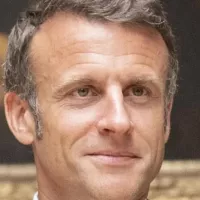
Emmanuel Macron is the current President of France and Co-Prince...
France officially the French Republic is primarily located in Western...
Russia officially the Russian Federation is a transcontinental country spanning...
Trending
3 months ago Akor Adams featured in Spain's La Liga soccer matches, showcasing his talent.
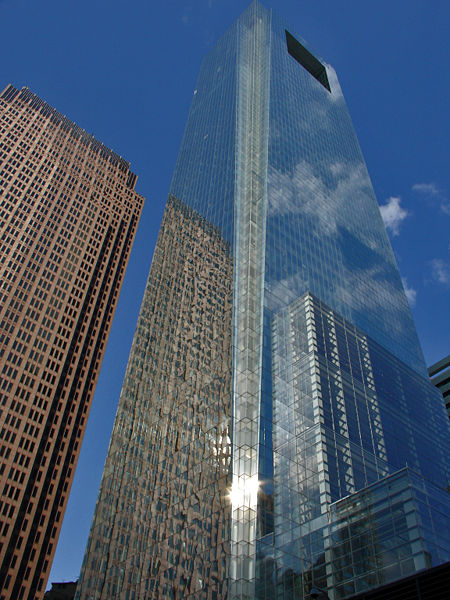
2 months ago Comcast's Xfinity TV Launches NBC Sports Network (NBCSN) Offering New Sports Content.
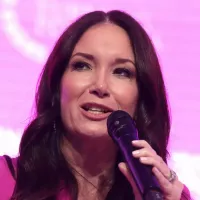
2 months ago Brooke Rollins' SNAP Benefits Criticism Sparks Controversy; Johnson Intervenes After 'Failed You' Comment.
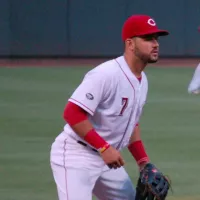
6 months ago Eugenio Suárez trade: Brewers and Yankees compete for star slugger before deadline.
Dante Moore is an American college football quarterback currently playing for the Oregon Ducks He transferred to Oregon after previously...
2 months ago Dylan Raiola Transfer Rumors Surface; Brother Decommits from Nebraska, Future Uncertain
Popular
Curt Cignetti is an American college football coach currently the...
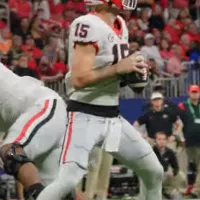
Carson Beck is an American college football quarterback currently playing...

XXXTentacion born Jahseh Dwayne Ricardo Onfroy was a controversial yet...
WWE Raw a professional wrestling television program by WWE airs...

William Franklin Graham III commonly known as Franklin Graham is...
Matt and Ross Duffer known as the Duffer Brothers are...
